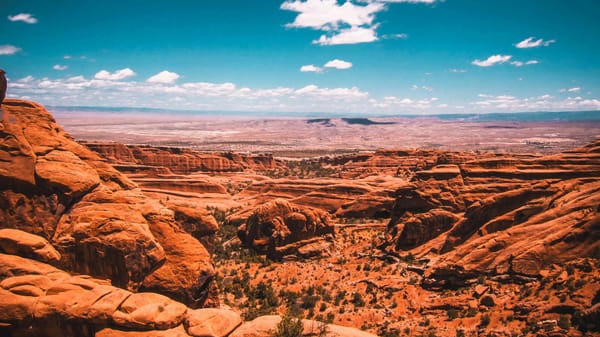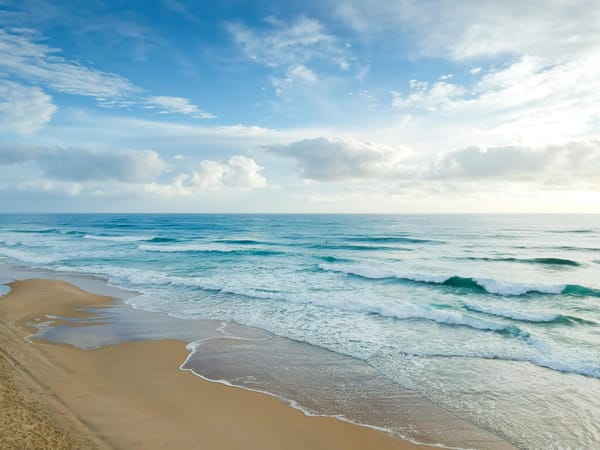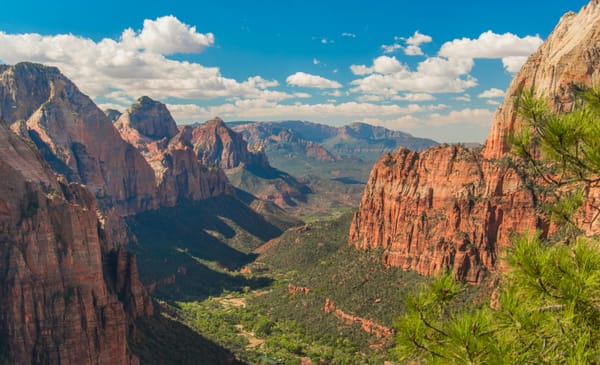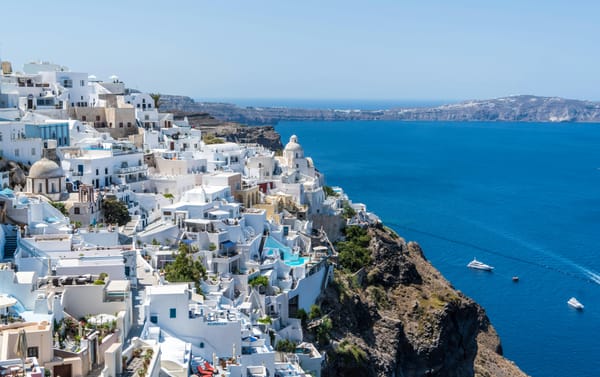Monday☕️

Trending:
- On November 1, 2025, Carlos Alberto Manzo Rodríguez, the 40-year-old mayor of Uruapan in Mexico's Michoacán state, was assassinated by two gunmen during a public Day of the Dead celebration in the town's historic center, where he was attending with his family and under police protection. Known for his vocal criticism of drug cartels like the Jalisco New Generation Cartel and local factions, Manzo had repeatedly urged President Claudia Sheinbaum to adopt a tougher stance against organized crime, accusing the federal government of inaction amid escalating violence in the region. The attack, which occurred in front of dozens of witnesses, left him fatally wounded despite immediate medical efforts, marking another high-profile killing in a state plagued by cartel turf wars.

- The assassination has sparked widespread outrage, leading to protests on November 2 in Morelia, the state capital, where demonstrators stormed the government palace, accusing authorities of complicity and demanding justice and the resignation of officials. President Sheinbaum vowed to pursue justice, while international figures, including U.S. diplomats, expressed condolences and offered enhanced security cooperation. This incident underscores ongoing challenges in Mexico's fight against cartels, including risks to public officials, potential political motivations, and calls for stronger federal intervention, amid concerns that such violence could further destabilize the region.
Economics & Markets:
- Yesterday’s commodity market:

- Yesterday’s crypto market:

Geopolitics & Military Activity:
- On November 2, 2025, the U.S. military conducted an airstrike on an alleged drug-smuggling vessel in the Caribbean Sea, resulting in the deaths of three individuals aboard, as confirmed by Defense Secretary Pete Hegseth. This operation, carried out by naval assets, targeted a boat suspected of transporting narcotics. The strikes have primarily focused on high-seas interdictions in the Caribbean and eastern Pacific, with reports indicating that similar actions have led to the sinking of vessels and the apprehension or elimination of suspected traffickers, though details on the specific location and assets involved in this latest incident remain limited.

- The escalation stems from heightened U.S. efforts to disrupt drug cartels amid rising fentanyl and cocaine flows into the country, with the administration framing these as necessary measures outside the scope of the War Powers Resolution to avoid congressional oversight. Critics argue the tactics are illegal under international law, potentially endangering civilians and straining relations with regional nations like Venezuela, while proponents highlight their role in curbing transnational crime.
Environment & Weather:


Science & Technology:
- On October 31, 2025, Anduril Industries (U.S. defense tech company) officially opened a 7,400-square-meter manufacturing facility in Sydney, Australia, dedicated to producing the Ghost Shark extra-large autonomous underwater vehicle (XL-AUV) as part of an A$1.7 billion program with the Royal Australian Navy. Palmer Luckey, the company's founder, announced the opening today, noting that it coincided with the completion of the first vehicle ahead of schedule; this unit is now prepared for undersea acceptance testing and in-water trials prior to its scheduled delivery in January 2026.

- The Ghost Shark is intended for tasks such as covert long-range reconnaissance, strike missions, and coastal patrolling, incorporating autonomous features, with production engaging over 40 Australian companies to support local supply chains and defense technology development. This initiative reflects Anduril's focus on developing cost-effective and scalable undersea systems, which will strengthen Australia's naval operations in the context of regional security dynamics. With full-scale production set to begin in 2026, the Ghost Shark will influence maritime tactics for Australia and its allies.
Statistic:
- Largest assets on Earth by market capitalization:
- 🇺🇸 Gold — $27.787T
- 🇺🇸 NVIDIA — $4.930T
- 🇺🇸 Apple — $3.995T
- 🇺🇸 Microsoft — $3.848T
- 🇺🇸 Alphabet (Google) — $3.396T
- 🇺🇸 Silver — $2.711T
- 🇺🇸 Amazon — $2.610T
- 🇺🇸 Bitcoin — $2.204T
- 🇺🇸 Broadcom — $1.745T
- 🇸🇦 Saudi Aramco — $1.653T
- 🇺🇸 Meta Platforms — $1.634T
- 🇹🇼 TSMC — $1.558T
- 🇺🇸 Tesla — $1.518T
- 🇺🇸 Berkshire Hathaway — $1.029T
- 🇺🇸 JPMorgan Chase — $846.93B
- 🇺🇸 Walmart — $806.69B
- 🇺🇸 Vanguard S&P 500 ETF — $780.29B
- 🇺🇸 Eli Lilly — $773.51B
- 🇺🇸 Oracle — $748.64B
- 🇨🇳 Tencent — $737.16B
- 🇺🇸 iShares Core S&P 500 ETF — $718.73B
- 🇺🇸 SPDR S&P 500 ETF — $690.67B
- 🇺🇸 Visa — $658.73B
- 🇺🇸 Vanguard Total Stock Market ETF — $559.37B
- 🇺🇸 Mastercard — $495.68B
Today’s Sponsor:
- Beyond the Box, based in Clearwater, Florida, specializes in custom renovation solutions—whether it’s a luxury kitchen, a spa-inspired bathroom, a full home transformation, or a new addition. Their team combines custom design expertise with quality craftsmanship to bring each client’s vision to life.

- Visit beyondtheboxkitchenandbath.com to explore their work and contact them today for a free consultation!
History:
- Coffee’s journey in Hawaiʻi began in 1825, when Chief Boki, the royal governor of Oʻahu, brought coffee plants from Brazil to the islands. However, it wasn’t until 1828 or 1829 that missionary Samuel Ruggles successfully planted the first arabica coffee trees in Kona, on the Big Island’s volcanic slopes. The combination of porous volcanic soil, afternoon cloud cover, and mild temperatures between 60–80°F created one of the most favorable microclimates on Earth for coffee cultivation. By the 1840s, coffee was being grown across multiple islands—Oʻahu, Maui, and Kauaʻi among them—but only Kona’s unique geography allowed sustained, high-quality yields. The Great Mahele land reforms of 1848, which privatized Hawaiian lands, led to the rise of small, family-run farms that defined the region’s culture of careful hand-picking and small-batch processing. Even when sugar plantations dominated the economy later in the 19th century, Kona’s smallholders kept their coffee heritage alive. Through the 20th century, despite challenges like labor shortages after the 1920s, blights, and economic hardship, families continued to nurture trees that today trace their lineage back nearly two centuries.
- In global context, Hawaiʻi remains a minor but elite player in coffee production. Whereas Brazil—the world’s largest exporter since the mid-1800s—focuses on mass-scale mechanized harvesting, and Colombia and Ethiopia are famed for regional flavor diversity, Hawaiʻi stands apart as the only U.S. state cultivating coffee commercially. Annual production from all Hawaiian islands (roughly 7–8 million pounds) is a drop compared to Brazil’s over 5 billion pounds, yet its coffees command premium prices. Kona coffee, often described as smooth, medium-bodied, and slightly sweet with chocolate and nut undertones, has become a luxury origin protected by a legal geographic designation since 1959. In recent decades, regions like Kaʻū, Maui, and Kauaʻi have developed their own estates and experimental varietals—such as Typica, Red Caturra, and Yellow Bourbon—expanding the island’s profile beyond Kona. Today, Hawaiian coffee symbolizes the meeting of heritage agriculture and modern specialty innovation, offering one of the world’s most distinctive, small-scale expressions of arabica cultivation.
Image of the day:

Thanks for reading!
- EARTH INTELLIGENCE builds private intelligence systems for organizations — connecting their internal and external data with AI to create one interactive command center for real-time awareness, decision making, and predictions.
Earth is complicated, we make it simple.
- Click below if you’d like to view our free EARTH WATCH globe:
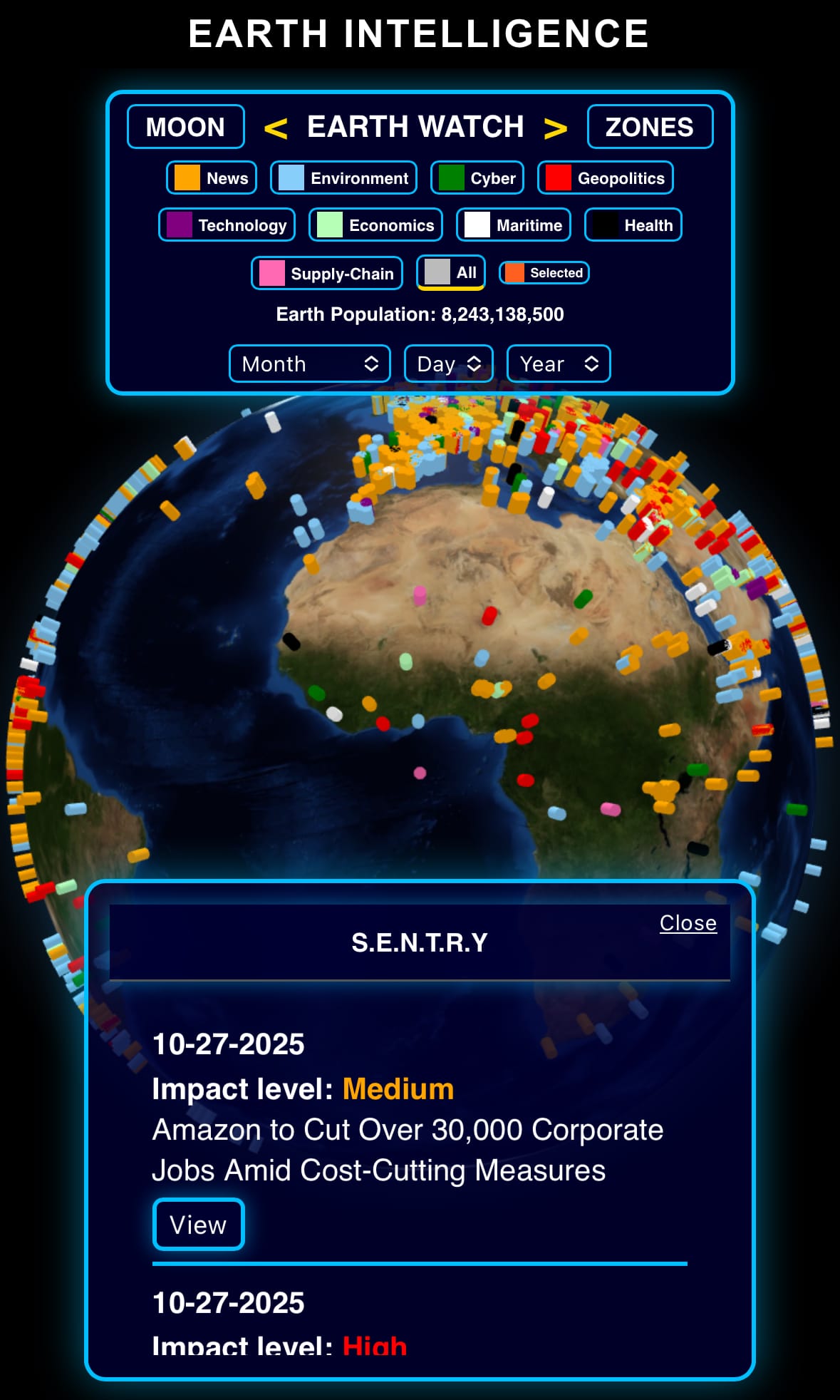

Click below to view our previous newsletters:
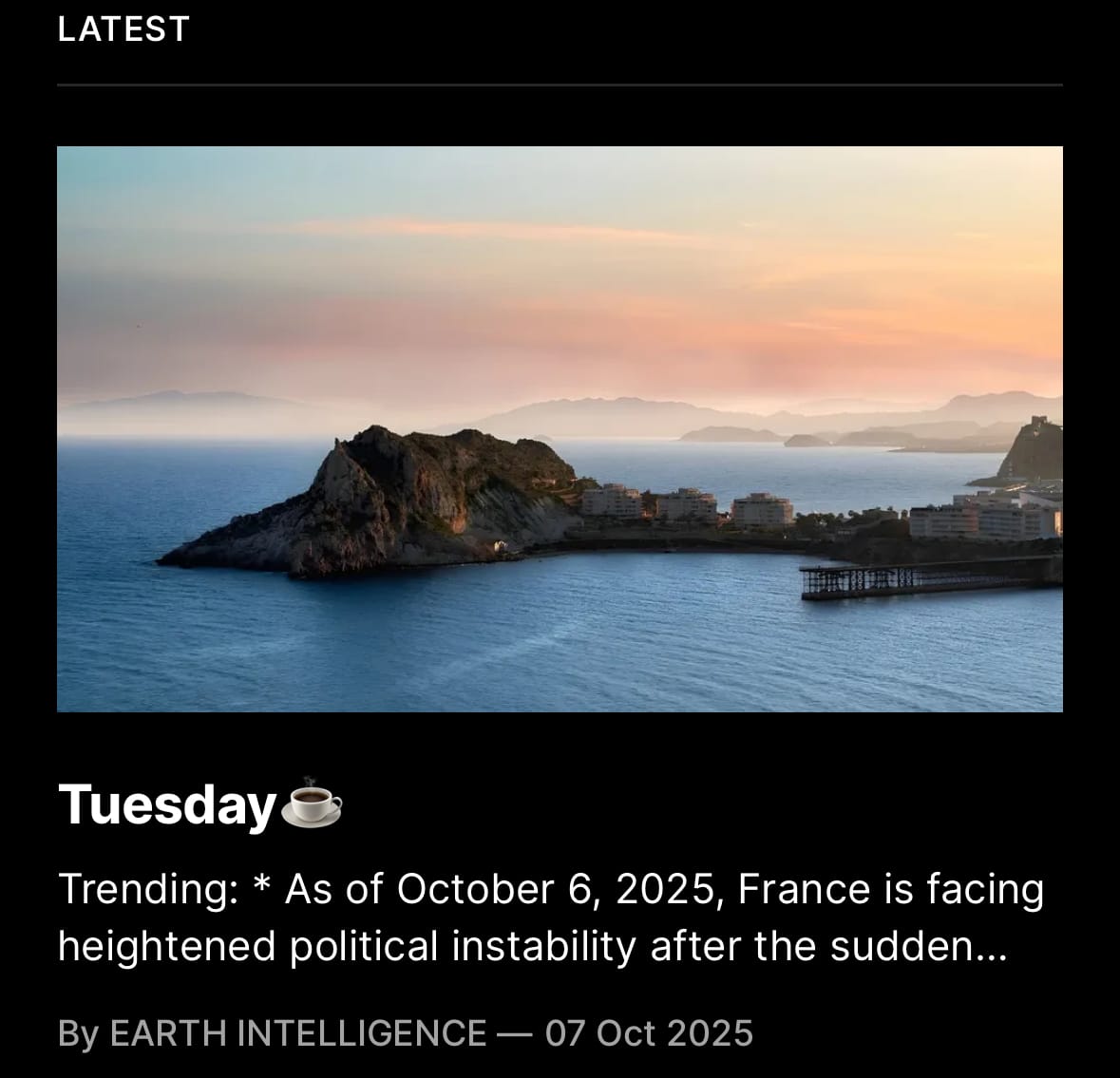
Support/Suggestions Email:
earthintelligence@earthintel.news

